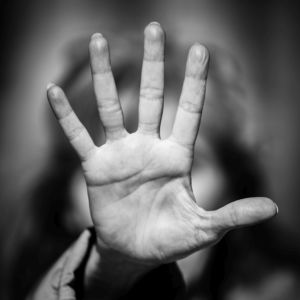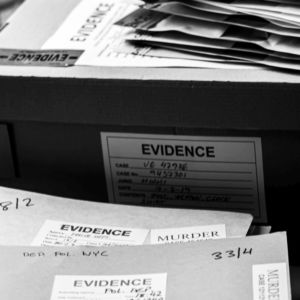Dedicated Clergy Abuse Lawyers Fighting for Survivors of Child Sexual Abuse in Maryland
For more than 40 years, Jeff Anderson & Associates has helped thousands of child sexual abuse survivors across the country find a path to justice and healing. We are smart, tough, and relentless, but the virtue that ultimately sets us apart is our compassion. We are people who feel deeply and work tirelessly in response to an unjust world. We have a reputation for being the best at what we do, and that begins and ends with our ability to support, protect and guide survivors along their journey toward justice and healing.
Maryland’s Child Victims Act of 2023
On April 12, 2023, Governor Wes Moore signed Senate Bill 686, Maryland’s Child Victims Act (CVA). This legislation takes effect on October 1, 2023, and eliminates the statute of limitations in Maryland for survivors of child sexual abuse, no matter when the abuse first occurred.
The Maryland Child Victims Act puts a cap on liability for public entities for financial compensation at $890,000 and $1.5 million for private entities for non-economic damages such as pain and suffering. Additionally, it removes the limit for economic damages for costs of services such as seeing a therapist or medical treatment.
Governor Moore signed the Maryland Child Victims Act following the House and Senate’s approval of the bill, which followed the release of the Maryland Attorney General’s report on clergy sexual abuse within the Archdiocese of Baltimore. The 463-page report revealed that over 150 clergy members associated with the Archdiocese of Baltimore sexually abused over 600 children.
Maryland Attorney General’s Report on Child Sexual Abuse in the Archdiocese of Baltimore
Shortly before the House and Senate’s approval of the Child Victims Act of 2023, the Maryland Attorney General’s office released a report on clergy sexual abuse within the Archdiocese of Baltimore. The 463-page report revealed over 150 clergy members associated with the Archdiocese of Baltimore sexually abused over 600 children.
Archdiocese of Baltimore Chapter 11 Bankruptcy
On September 29, 2023, the Archdioceses of Baltimore filed for Chapter 11 Bankruptcy reorganization. This expected and ill-fated decision by the archdiocese is a shallow attempt by the bishop to harbor perpetrators, conceal assets, and shield the truth from survivors of sexual abuse.
On December 18, 2023, the U.S. Bankruptcy Court District of Maryland ruled that the claims bar date for survivors in the Archdiocese of Baltimore Chapter 11 bankruptcy is May 31, 2024. This means survivors abused in the Archdiocese of Baltimore have until May 31, 2024, to take legal action and file a claim.
Historically, organizations such as Catholic dioceses and religious orders have used Chapter 11 Bankruptcy as a shield to prevent embarrassing jury trials, allowing the institution to continue “business as usual” while continuing to hide its secrets. Bishops use this legal tactic to prevent survivors of child sexual abuse from pursuing legal action, exposing predators, and holding the Diocese accountable. However, you still have legal rights. Please visit our Chapter 11 bankruptcy FAQ page for more details about this process.
How Perpetrators & Corrupt Institutions Silence Sexual Assault Survivors & Empower Predators
- Grooming
- Threats to hurt family, loved ones or friends
- Reminding the victim of the perpetrator’s powerful connections
- Continued insistence that “no one will believe” the victim
- Verbal abuse that often results in lower self-esteem or self-worth
- Increased isolation over time, making it less likely the victim will confide in others
- Overall coercion, threats, & extreme harassment
- Aggressive legal strategies meant to intimidate and silence the victim
- Non-disclosure agreements (NDAs)
“Survivors should never feel ashamed of what happened to them. Perpetrators are expert, calculated manipulators.” – Jeff Anderson, attorney & advocate
Why Survivors Often Wait to Disclose Abuse
- Shame and thinking the abuse was in some way their fault
- Fear that the perpetrator will find out and will retaliate
- Fear that their friends, coworkers or family will find out
- Apprehension that they will not be believed
- Anxiety that talking about the abuse will be painful and triggering
- Fear of the authorities or fear of the unknown process of a legal consultation
- Non-disclosure agreements or other legal threats or coercions
The Majority of Victims Know Their Perpetrator
Survivors of Catholic Church clergy sexual abuse in Maryland can now take legal action against their perpetrators and the institutions that harbored those perpetrators. It’s time to take action under the Maryland Child Victims Act. Contact us confidentially today.
Frequently Asked Questions
Below are a few questions many survivors have. Our Questions & Answers page has a robust section of frequently asked questions, answers, and survivor resources.

What if I Didn’t Fight Back or Say No? I’m an Adult and Should Have “Known Better”. Do I Deserve Justice?
Yes. Every survivor deserves justice, no matter what. It is normal for survivors to feel shame about the abuse, but it’s important for survivors to know the abuse is not their fault. Perpetrators are expert manipulators, and they know exactly how to target, control, manipulate and silence their victims.

What if the Perpetrator That Abused Me is Dead? Do I Still Have Legal Options?
There is a common misconception that if a perpetrator is dead that, 1. The survivor does not have legal options and, 2. There is no longer a safety risk to the public. Typically, neither of these claims are true. Even if the perpetrator is dead, survivors can usually still take legal action. A survivor’s lawsuit may provide evidence needed to substantiate the experience of other victims. Additionally, if the abuse was covered up by an institution (Catholic church,university, corporation, etc.) taking legal action may prevent the institution from continuing to cover up sexual abuse by other perpetrators.

I’m Not Sure If I Qualify to Take Action Under Any Current Laws. What Should I Do?
Even if you think you don’t qualify under an Adult Victims Act law, you should consult an attorney. We recommend contacting a trauma-informed law firm that communicates with compassion, patience and understanding; this vastly improves the experience for the survivor. After contacting an attorney, a survivor should walk away from the conversation feel empowered and knowledgeable in what their options are.

I’m a Male Survivor of Clergy Abuse and am Scared and Ashamed to Come Forward. Will People Know Who I Am?
Sexual abuse is stigmatized in our society, arguably even more so for men. Being ashamed is a feeling many survivors experience. Many survivors do not want others to know about what happened to them, and that is okay. We take the privacy and confidentiality very seriously. When a lawsuit is filed, it is filed publicly and that is not something we are able to change. However, a lawsuit can usually be filed under a pseudonym, like John or Jane Doe. That way, a survivor’s identity can remain anonymous. This typically allows for any identifying details of a lawsuit to remain private. However, if a perpetrator or parish is identified in the lawsuit, there is a legal right for them to be made aware of the lawsuit and to obtain a copy of the filed lawsuit.

I’m Nervous to Reach Out as I Have Never Told Anyone About My Abuse. What Should I Expect?
Many of the survivors that call us have never told anyone about their abuse before. We understand how difficult it can be to take that step. Before reaching out to us, it may be helpful to take a look at our Questions & Answers page; it has a lot of answers to common questions survivors often ask. In that section, we answer the common question: What is Legal Consultation Like? and go through what survivors can expect when they reach out to us.

I Don’t Have Any “Proof” or “Witnesses” of the Abuse. Will Anyone Believe Me?
When survivors call us, they are believed, listened to, and treated with compassion. Perpetrators often do everything they can to make sure that victims don’t have “evidence” to substantiate that the sexual abuse took place. Other times, survivors—out of fear and/or shame—will get rid of photos, gifts, letters, and other items.
An experienced lawyer will explain the civil justice process, how survivors can support their case, and how the institution that covered up the abuse will most likely be in possession of materials or documents that will support the survivor’s account. Helping identify the strength of a legal case is one of the reasons why survivors want an experienced sexual abuse attorney.
Every Survivor’s Journey Towards Healing is Different. Hear Their Stories.
We have the honor of witnessing the courage of the survivors we work with, every day. Sharing these inspiring videos is another way that we can remind everyone who has been victimized by sexual abuse that they are not alone. See our Survivor Testimonials page to hear from more survivors.
Tom Emens
“I don’t want to hide anymore, I don’t want to be helpless anymore. I want to be empowered.”
When Tom was ten years old, his priest, Msgr. Thomas Mohan, began sexually abusing him – the abuse lasted for over a year and robbed Tom of his innocence. For decades, he worked to heal and waited for an opportunity to seek justice. In 2020, Tom filed a legal claim for the abuse he suffered as a child. Since then, he has become a vocal advocate for survivors, saying that he wants to use his voice and courage so that other survivors know they aren’t alone.
Monica Perez Jimenez
“I didn’t even realize what was actually happening to me…but I knew it wasn’t right.”
When she was 14 years old, Monica Pérez Jiménez was sexually abused by her teacher, Louis Tambini, at Loyola School in Manhattan. Like so many other survivors of child sexual abuse, Monica suffered for decades in silence and shame, not sure how to share her secret or who she should tell. Eventually, Monica found the courage to share her truth.
Aimee Galicia-Torres
“For years I suffered in silence…it took a toll on me, but I think the bigger toll was not saying anything.”
Aimee Galicia-Torres was only eight years old when a priest who was also a family friend molested her at an aunt’s house. The sexual abuse went on for four years. In 2020, Aimee filed a lawsuit against the Archdiocese of Los Angeles under the California Child Victims Act for their negligence in the hiring and supervision of Galicia-Torres’ abuser, Father Honesto Bismonte. By speaking up, Galicia Torres has restored a sense of hope she hadn’t felt in a long time.
If you were sexually abused by a clergy member in Maryland, you deserve justice and healing. Contact us for a compassionate, confidential conversation.

